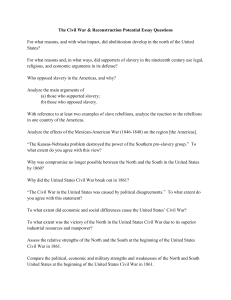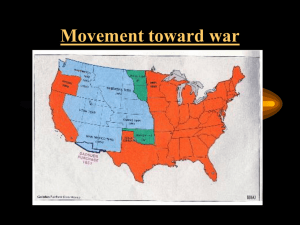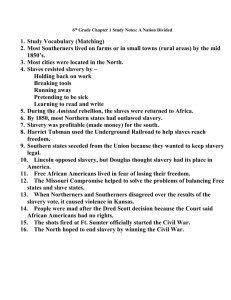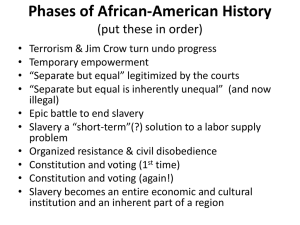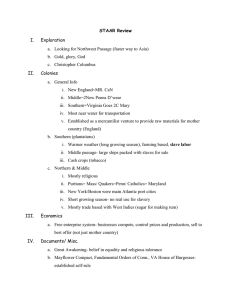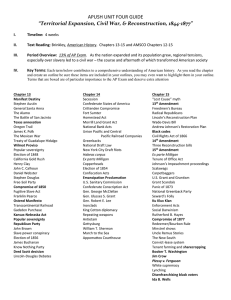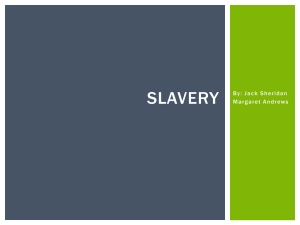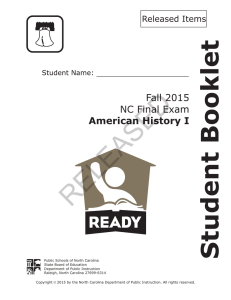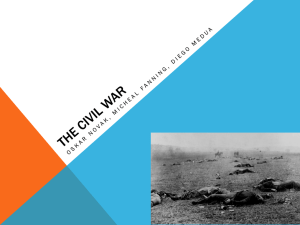Slavery & Civil War Study Guide: Key Topics & Questions
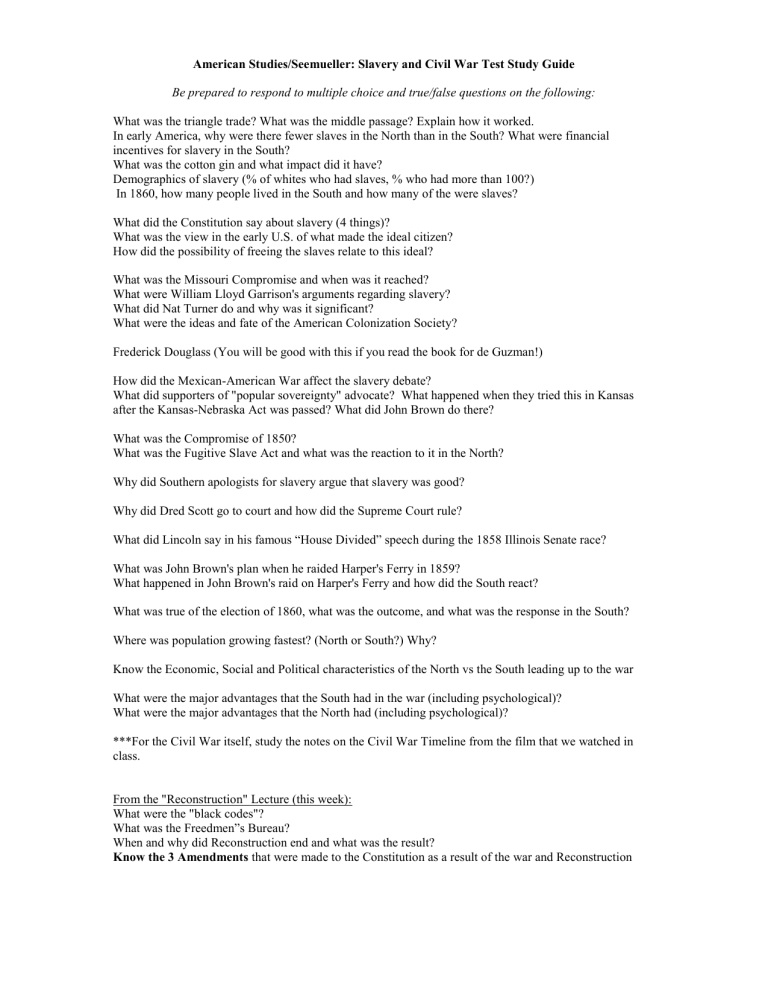
American Studies/Seemueller: Slavery and Civil War Test Study Guide
Be prepared to respond to multiple choice and true/false questions on the following:
What was the triangle trade? What was the middle passage? Explain how it worked.
In early America, why were there fewer slaves in the North than in the South? What were financial incentives for slavery in the South?
What was the cotton gin and what impact did it have?
Demographics of slavery (% of whites who had slaves, % who had more than 100?)
In 1860, how many people lived in the South and how many of the were slaves?
What did the Constitution say about slavery (4 things)?
What was the view in the early U.S. of what made the ideal citizen?
How did the possibility of freeing the slaves relate to this ideal?
What was the Missouri Compromise and when was it reached?
What were William Lloyd Garrison's arguments regarding slavery?
What did Nat Turner do and why was it significant?
What were the ideas and fate of the American Colonization Society?
Frederick Douglass (You will be good with this if you read the book for de Guzman!)
How did the Mexican-American War affect the slavery debate?
What did supporters of "popular sovereignty" advocate? What happened when they tried this in Kansas after the Kansas-Nebraska Act was passed? What did John Brown do there?
What was the Compromise of 1850?
What was the Fugitive Slave Act and what was the reaction to it in the North?
Why did Southern apologists for slavery argue that slavery was good?
Why did Dred Scott go to court and how did the Supreme Court rule?
What did Lincoln say in his famous “House Divided” speech during the 1858 Illinois Senate race?
What was John Brown's plan when he raided Harper's Ferry in 1859?
What happened in John Brown's raid on Harper's Ferry and how did the South react?
What was true of the election of 1860, what was the outcome, and what was the response in the South?
Where was population growing fastest? (North or South?) Why?
Know the Economic, Social and Political characteristics of the North vs the South leading up to the war
What were the major advantages that the South had in the war (including psychological)?
What were the major advantages that the North had (including psychological)?
***For the Civil War itself, study the notes on the Civil War Timeline from the film that we watched in class.
From the "Reconstruction" Lecture (this week):
What were the "black codes"?
What was the Freedmen”s Bureau?
When and why did Reconstruction end and what was the result?
Know the 3 Amendments that were made to the Constitution as a result of the war and Reconstruction

